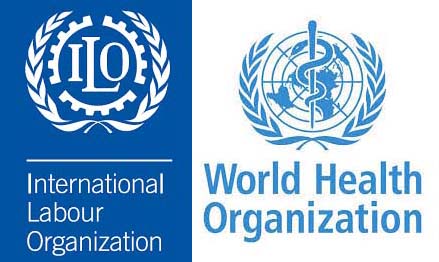New research from eminent scientists highlights the monumental tasks but trivial budgets afforded the World Health Organisation (WHO) and the International Labour Organization (ILO). Both agencies of the United Nations, the WHO is responsible for the technical aspects of occupational health and safety, and the promotion of medical services and hygienic standards while the International Labour Organization (ILO) sets international labour standards and promotes social protection and work opportunities for all.
With nearly 3 million workers known to die each year from occupational injuries and diseases, and occupational cancer responsible for almost a third of work-related deaths, it’s imperative that both agencies have the capacity to react to the growing crisis in occupational health. Occupationally related injuries alone can cause permanent disabilities and costs up to 4-6% of national incomes. The cost to poorer countries is in excess of $10 trillion because they experience a greater share of hazardous production and unsafe work environments.
Those most at risk are workers in less secure employment, on low wages, with long hours, and ununionised, this is compounded by poor diet, housing, and health care. Migrant, indigenous and seasonal workers, and women and child workers are among those most likely to be exposed to toxic and hazardous working conditions. The very workers who need the protection of the ILO and the WHO.
Instead the research paper found both the WHO and the ILO have limited capacity to make the necessary changes. Big demands but small budgets. The paper mapped funding trends which showed the agencies dependency on private funding far outweighed the amount contributed by member states.
The research paper highlights a ‘glaring weakness’ of organised labour around the world but identifies that there are a number of small trade unions and NGOs operating globally and regionally which, although less well resourced than the UN agencies, have managed to reach workers with help and support and improve working conditions. The paper’s authors recommend the UN could strengthen these organisations role in the ILO and the WHO.
The papers also suggests that funding from those with a conflict of interest in policy decisions should be limited with the aim of “equalising corporate and vested interests with those of communities, Non-Governmental Organizations, Civil Society Organizations and Social Movements”. Support should also be given to the WHO to prevent corporate influence and strengthen its ability to reach out to developing countries.
Paper: Occupational health: a World of False Promises. Joseph LaDou, Leslie London and Andrew Watterson. Environmental Health. 17:81
